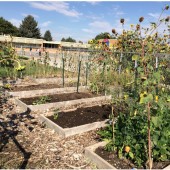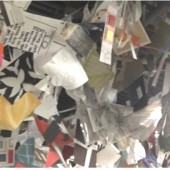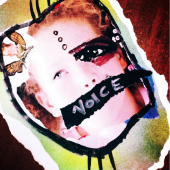This essay presents an exploration of a wide spectrum of current ecocultural relations through the creative methodology and expression of performance. We present a script of a performance inspired by a seemingly simple prompt for a pedagogical free write exercise “When I say ‘nature,’ I mean…” The goal of the free write exercise is to illuminate and open up for questioning and transforming our cultural assumptions, embodied meanings, and social constructions associated with the idea of “nature.” The authors/performers reflect about the process of creation and their intimate struggles with environmental ideologies often hidden behind the veil of common sense, political posturings, or disciplined concealments. As an art form, performance allows engagement with imaginations that emerged as radical, thus insinuating the need for a more nuanced and free scholarship, as well as for embracing performance as liberating pedagogic activism.
Continue ReadingArt-science intersections are a powerful means to inspire creative thinking in our future scientists, engineers, and citizens, which will allow them to imagine and build a sustainable world. Coupled to active learning and collaboration in science education, art can be a means to evoke deep meaning in abstract concepts such as Planetary Boundaries (PB). Relating PB to an individual’s choices and actions makes these concepts more tangible. As our nation strives to produce more science and engineering majors, we see an emphasis to recruit students to these fields early in their education, but this education does not always inspire creativity or encourage students to use their skills to create a sustainable future. This is particularly true in underrepresented, less privileged populations, where students see a career in science or technology as a means to live a more comfortable life—which can be very resource intensive on our planet. Through our undergraduate research program at Pasadena City College, we translate our research in sustainable materials into lessons to teach underrepresented middle school and high school students about sustainability. Hands-on classroom experiments focused on sustainability and renewable energy drive in-depth discussions relating PB to each student’s actions within their community. Outreach to underrepresented populations has stimulated interest in sustainability and careers in which STEM degrees can be applied to ‘green’ urban areas and make individuals aware of how their choices can impact the environment. Sustainability education is therefore an opportunity to promote diversity in the STEM workforce. Importantly, these outreach efforts have also greatly impacted the community college students who design and carry them out.
Continue Reading
This essay describes a project in which a 4th grade class joined forces with a university class to study and produce as theatre Paul Fleischman’s Seedfolks, an inspiring story of a diverse group of community residents who transform a vacant urban lot into a wonderful community garden. In addition to the arts component, the two teachers unexpectedly found an opportunity to encourage sustainability of education when their students embarked on a pen pal correspondence.
Continue Reading
Many educators teach the topic of sustainability, but how many do so in a sustainable manner? From the requirement of textbooks, to paper for printed syllabi or assignments, higher education is a consumer of resources. The materials of design education, however, expand to include media like trace paper for ideation or foamcore for model making, as a means of communicating ideas. Yet, following presentations and grades, a majority of these physical materials enter the waste stream while digital versions populate online portfolios. Hence, design education provides a unique and transferable lens to explore an inquiry-based collection, documentation, exhibition and repurposing of discarded materials, to render new insights and re- imagine pedagogical practices, wherein learning and deliverables truly reflect the values and discourse of sustainability.
Continue Reading
The field of Arts Education is rich in Data. Where qualitative studies fall short when it comes to influencing wide-spread policy decisions, the author calls Educational Agencies, Arts Educators, Community Arts Organizations, and Teaching Artists to ‘reframe’ their communication findings to positively influence sustainability and increased access to the field. Arts Education Practioners and advocates must increase their education policy literacy to transform into effective agents of change.
Continue Reading